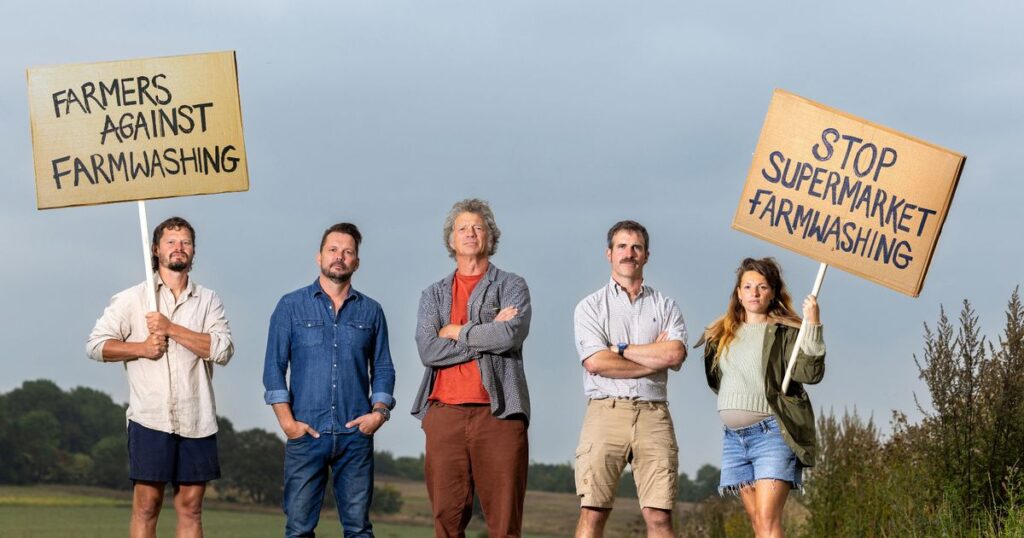An open letter, spearheaded by Guy Singh-Watson from Riverford Organic, has been sent to the chief executives of the UK’s leading supermarkets, demanding an end to ‘unethical’ marketing practices that mislead consumers about the origins of their food. The letter, addressed to Tesco, Sainsbury’s, Lidl, Aldi, Morrisons, and Asda, highlights the deceptive use of British branding to imply that products are sourced from small local farms when, in reality, many come from industrial-scale operations or overseas.
The campaign, titled Farmers against Farmwashing, is calling for greater transparency from major retailers. Signatories of the letter include over 100 individuals, such as television chef Rick Stein, musician Marcus Mumford, and Lib Dem MP for Glastonbury and Somerton, Sarah Dyke. They urge supermarkets to provide accurate information about the provenance of their food and the conditions under which it is produced.
Singh-Watson argues that the overuse of the Union Jack on packaging creates a false narrative that all products are domestically sourced from small-scale British farms. He emphasises that many of these products originate from ‘industrial US-style, mega farms’ or foreign suppliers. This ‘unethical’ marketing strategy, he asserts, hides the grim reality of the declining British family farms, which are struggling to survive under current market conditions.
Riverford’s research presents a stark picture: 61% of farmers fear they will have to abandon their farms within the next 18 months, and only 24% believe that supermarket claims of supporting British farmers are genuine and reflected in their purchasing behaviour. Singh-Watson describes ‘farmwashing’ as a tactic where retailers pretend their products meet consumers’ expectations of British farming, while in truth, the situation is vastly different. He points out that British branding is being exploited without fair compensation to the actual farmers.
The letter accompanies a documentary series that can be viewed on stopfarmwashing.co.uk. Jimmy Doherty, a farmer and TV presenter, supports the campaign, stating that the rise of ‘US-style mega-farms’ has pushed small-scale farmers to the brink of extinction. While these large operations may offer cheaper meat, Doherty warns of the hidden costs, including poor animal welfare, environmental damage, and the loss of traditional farming livelihoods. He calls for urgent action to support genuine British farming before it is too late.
Andrew Opie, director of food and sustainability at the British Retail Consortium, responded by affirming that supermarkets are committed to promoting British farming and adhere to strict food labelling laws, including the use of national flags. He also mentioned that retailers have been proactive in pushing the government to tighten these regulations earlier this year. Opie explained that retailers create new farm brands for some own-label goods to help consumers identify quality products.
The ongoing debate over ‘farmwashing’ raises significant concerns about transparency and fairness in the food industry. The call for accountability and genuine support for British farmers highlights the urgent need for ethical marketing practices and underscores the precarious situation faced by many small-scale farmers in the UK. Immediate and decisive actions are essential to ensure the survival of traditional farming and to maintain consumer trust in the integrity of the food they purchase.

